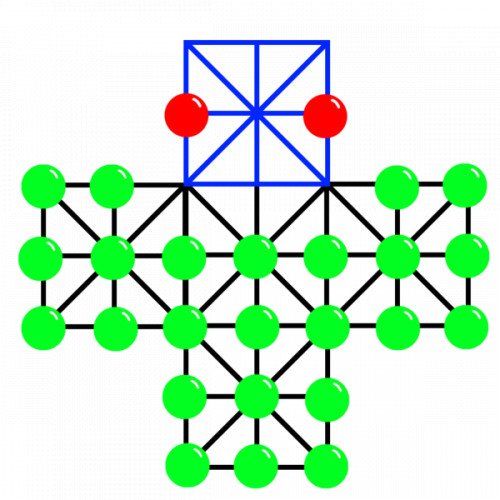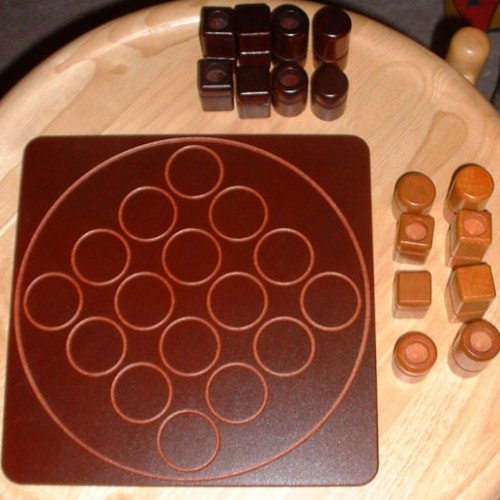ASALTO VS QUARTO

ASALTO
Asalto, also known as the Assault Game, German Tactics or Officers and Sepoys, is a board game for two players in which one player, playing as the officers, attempts to defend a fortress from their opponent's invading rebels. The game is a variant on the Fox and Geese theme, and is commonly played in Germany, France, and England. Asalto is an asymmetric game in which the players take on two very different roles: the rebels and the officers. The rebels' objective is to capture the two officers, surround them so that they cannot move, or occupy all of the points within the "fortress". The officers' objective is to capture enough rebels that these tasks become impossible. Asalto is played on a grid of 33 intersection points in the shape of a cross, with a specially denoted arm known as the fortress at the top of the board. The total number of pieces in an Asalto game is 26, composed of 24 rebels and two officers. Before play begins, the rebels are arranged so that they sit on the 24 intersection points outside the fortress, while the officers may be arranged at the player's discretion inside the fortress. The game begins once the rebel player takes the first turn.
Statistics for this Xoptio

QUARTO
Quarto is a board game for two players invented by Swiss mathematician Blaise Müller. It is published and copyrighted by Gigamic. The game is played on a 4×4 board. There are 16 unique pieces to play with, each of which is either: tall or short; red or blue (or a different pair of colors, e.g. light- or dark-stained wood); square or circular; and hollow-top or solid-top. Players take turns choosing a piece which the other player must then place on the board. A player wins by placing a piece on the board which forms a horizontal, vertical, or diagonal row of four pieces, all of which have a common attribute (all short, all circular, etc.). A variant rule included in many editions gives a second way to win by placing four matching pieces in a 2×2 square. Quarto is distinctive in that there is only one set of common pieces, rather than a set for one player and a different set for the other. It is therefore an impartial game.